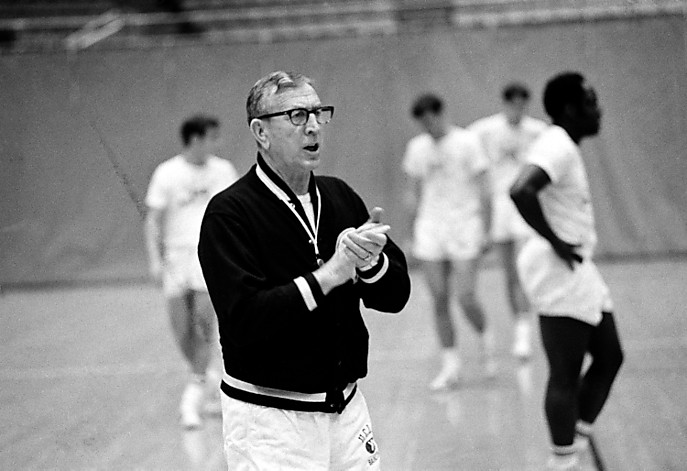Do We Have the Bandwidth to Implement Process?

A founder and CEO of a global transportation services company asked this very interesting question:
• Do we have the bandwidth to implement
process while the selling wheel must keep
turning?
Every company faces conflicts with time and resources when beginning to implement process excellence. Their people tend to perceive process as extra work they are being asked to do in addition to their “regular” work:
• Meetings focused on improving the work take time away from doing work, such as making customer calls.
• Collecting information about sales activity is additional work, and we hate record keeping.
• If we have to do all this, someone should reduce our work load, or something…
So the first thing to do is recognize there is something to this. If you want to improve, you have to pay a price of some kind.
The real question is: “Do you want to improve?” And, if so, “How?”
Legendary UCLA coach and Basketball Hall of Fame member John Wooden, who consistently led his teams to victory (including a still-unbroken record of 88 consecutive wins), had some things to say about leading people to improve. He is famous for never expecting his players to win or lose. Instead, he expected them to do the very best of which they were capable.
“I never stressed winning. I don’t think any of my players will tell you that they heard me mention winning. I wanted the score to be a by-product of the preparation, and I thought that practice was the thing.”
“Let’s say Mr. Grigsby owns a company that manufactures shoes. I believe shoes are simply a by-product for his company. Their real product is the team work of people within the company along with the manufacturing plant and other elements of the business that the leader, Mr. Grigsby, has brought together. How his company’s people work as a team is the product. Shoes are a by-product.”
“Likewise, in my coaching I informed every player who came under my supervision that the outcome of a game was simply a by-product of the effort we made to prepare. They understood our destination was a successful journey—namely, total, complete, and detailed preparation. Too often we neglect our journey in our eagerness or anxiety about reaching the goal.”*
So, let’s say you do want to improve. In fact everyone on your team wants to improve. The next logical questions are as simple as they are foundational:
What are you trying to accomplish? What is the problem you are trying to solve? (These are your objectives)
What change can you make that will result in improvement? (These are your methods)
How will you know if you have improved? (These are your measures)
Everyone on the team has to think through the answers to these questions if they are to improve. This requires observation and experimentation and discussion. Not with elaborate laboratories and lab coats, but through the preparations necessary to be more mindful of their objectives, methods, and measures. If improvement doesn’t happen as we would like, the cause is in these preparations. How can it be anywhere else?
For example, suppose your salespeople are frustrated about spending too much time on the wrong accounts. Is putting more effort into every account better than stepping back to think about what might be causing this problem? Will they be better off continuing to whine about it, or to try using some new tools that could solve the problem once and for all, even if that means collecting some data?
Note the fact that the salespeople themselves are feeling pain. This is essential: Process improvement only works if people doing the work get something from it. If the people who need to improve are feeling no pain, that is a problem only leaders can solve.
How do they do that? By adopting the same principles and values they expect from their people. When leaders improve themselves, they earn the right to expect – I would even say demand – improvement from their team members.
So, you see, process excellence isn’t really extra work. If improvement is taken seriously, process excellence is essential to the work itself.
But of course, that is something each individual on your team must learn for themselves. And, helping them learn it – through preparation, learning, and practice – is one of the most rewarding experiences a leader can have.
Thank you for the opportunity to think through the answer to this question. I hope my response is helpful to you in some way. Please do let me know your thoughts.
Michael
*“Wooden, A Lifetime of Observations and Reflections On and Off the Court” by Coach John Wooden with Steve Jamison, New York: 1997 Contemporary Books.

